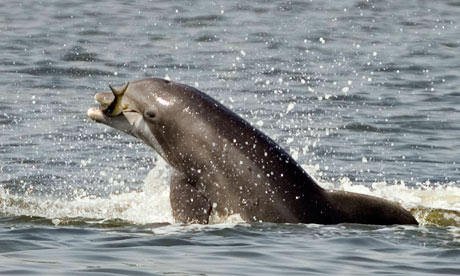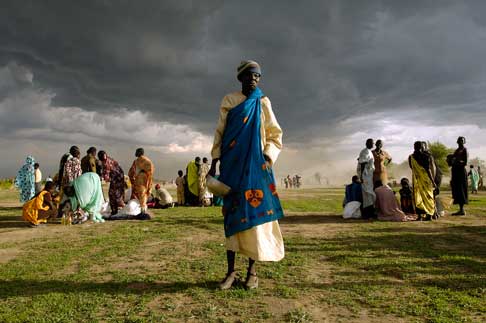Green Ganeshas
Ganesha Chaturthi is a major Hindu festival in India. The highlight is the immersion of thousands of idols of the elephant-headed god Ganesha in lakes and rivers. Environmentalists however say the brightly-colored statues contain toxic chemicals which cause serious pollution to water bodies.
Now, authorities in the state of Andhra Pradesh have launched a campaign ahead of this year’s festival in September for eco-friendly Ganeshas. They’re pushing for the use of statues made of clay instead of the usual plaster of Paris. Clay, they say, dissolves quickly and does not harm aquatic life. Idol-makers are being trained to use natural colors instead of chemicals for painting the statues. The campaign also urges people to remove plastics and other decorations put on the idols before they are immersed in the water.
World Water Week 2011
“Water in an Urbanising World” is this year’s theme of World Water Week currently taking place in Stockholm. The 2011 installment of the annual event draws experts from science, NGOs, business and politics to debate the issue of water (and the lack of it). In the words of the organizers the conference “focuses on new thinking and positive action toward water-related challenges and their impact on the world’s environment, health, climate, economic and poverty reduction agendas.”
Watch the live stream from the conference here:
Bike-friendly Living

Europe has some of the most bike-friendly cities on the globe, from Copenhagen and Berlin to Amsterdam and Barcelona. But cities elsewhere in the world have also caught onto the trend, like Portland and San Francisco in the U.S. and Kyoto and Singapore in Asia.
Bikes help cut down on traffic, congestion and harmful greenhouse gas emissions. They also lead to a healthier, more active society, and they’re much cheaper than a lot of other modes of transportation.
But what will the future look like when it comes to bikes and cars? Will we ever see a major metropolis completely dependent upon bikes and public transit? It’s hard to imagine that happening, especially in the world’s most densley-populated cities, where there is little infrastructure to support bike traffic. Still, we could see completely car-free urban centers in the future…only time will tell!
Clean Energy vs. Environment?

Turning to renewable energy sources is an effective way to tackle climate change, but does it damage our environment too? A lot of critics say biomass production exploits important land and offshore windparks disrupt the marine habitat.
The German government is trying to find a way to address the offshore windpark problem with a new solution: a sort of bubble-curtain. The problem is, construction in the Baltic Sea produces a lot of noise underwater, and that creates problems for whales and poropoises that use sonar signals for communication. So officials are proposing a type of low-cost technology that would release bubbles from the sea floor and mute a lot of the noise. That way, the drilling and pounding wouldn’t be quite so disruptive and marine life could continue communicating as they do now. If it’s successful, the bubble-curtain idea could be used on several other underwater construction sites!
Women in Climate Change Battle

As South Africa prepares for the upcoming climate talks in Durban, the country is also trying to improve its own climate profile by making South Africa a more environmentally-friendly place. And Maite Nkoana-Mashabane, the country’s minister of international relations, says women will need to lead the way.
It’s not the first time women have been described as the key to fighting climate change – and other global issues, for that matter. The UN says women make up the biggest share of the poor across the world. And it’s most often women who are dependent on natural resources to find food, water and energy to take care of their families. So naturally, they end up taking the brunt of the effects of climate change, which makes it harder to get those resources.
Yet women in many parts of the world have little power to effect social, political or economic change. Maite Nkoana-Mashabane says we need to empower the world’s women to make those changes, by giving them the support needed to cope with climate change and listening to their voices. And she says any climate agreement has to take women into account.









Feedback